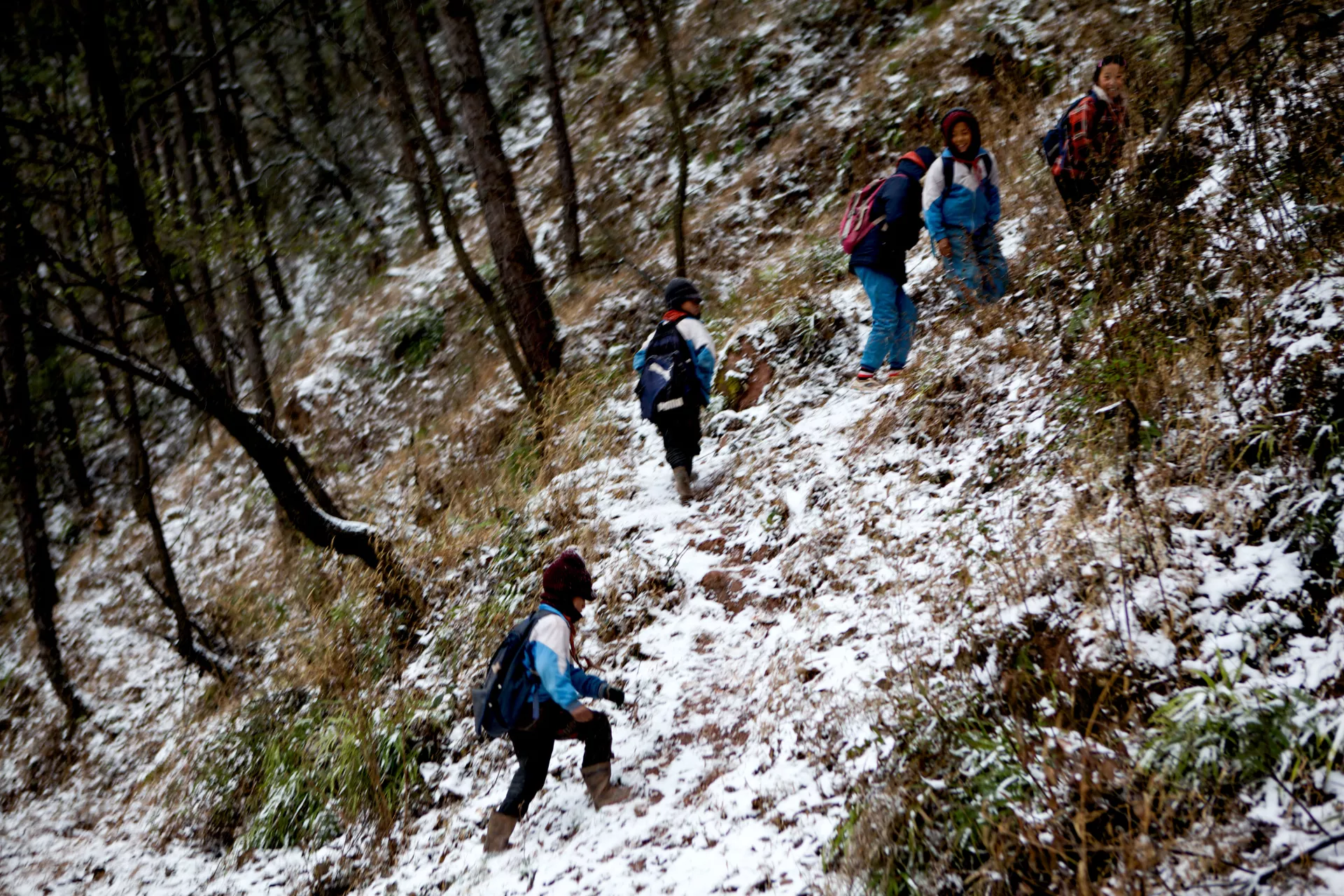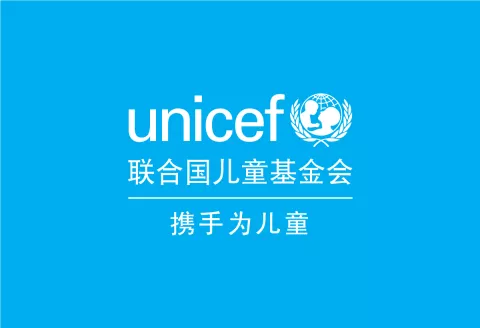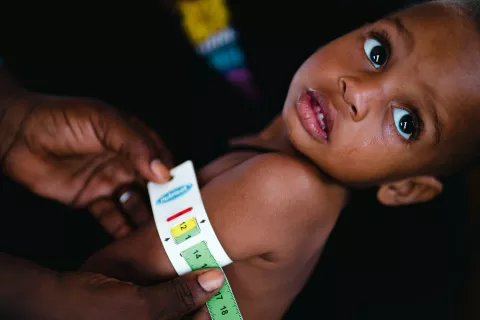Breaking the cycle of poverty
Liangshan Prefecture

- Available in:
- 中文
- English
March 2011 – Early in the dawn, Mizai and his classmate Qubu leave home and walk about 1.5 hours to climb over a mountain to catch the free breakfast at school by eight o'clock. “The food at school is better than the potatoes we normally eat at home.” Mizai aged 12 said.
About six months ago, the boys as well as another eight children in Shaluo Yida Village were herding sheep and farming in the field. The village head and Child Welfare Director Libi Nongshi went to their homes and talked the parents into sending their children back to school.
The Child Welfare Director plays a key role in a new UNICEF and Ministry of Civil Affairs programme aimed at tackling complex child poverty in 120 villages in western China's poor, remote communities. The Child Welfare Model Project was started in May 2010. The ultimate goal is to break the age-old cycle of poverty by making sure that all basic services for children are coordinated and managed in a comprehensive way.
In view of the many needs of children in Liangshan Prefecture, Ms. Xu Wenqing, UNICEF China specialist, said it requires concerted efforts from all sides and years to bring in fundamental changes. “And the key lies in education,” she said. “I myself came from a very small place of Inner Mongolia. It is education that has changed my life.”
Figures from the Sichuan Provincial Bureau of Statistics show that, the primary school five-year attendance rate of Liangshan Prefecture in 2009 stands at about 71%, which means that in every ten enrolled students, only seven can complete the entire primary education.
Even children who have left school and then returned, are at risk of dropping out again because the very poor families need them to help with farm work and cannot afford the boarding school fees. Some children drop out because they cannot keep up with the instruction. The loss of education and training often starts the cycle of poverty in just the same way it affected their parents.
“Back home, my son can help herd sheep to make the family life a bit easier. Also the teaching quality (of the local schools) is not good here, and it may be a waste of money in the end if we keep supporting (his education). I don't have the confidence that we can continuously support him. ”Jile Liqie, father of Mizai, aged 39, said.
His family income over a year ranges from about RMB 2000(about US$310) to about RMB 1,000 - much the same as others in the village.
“To bring him up, make him a family and get a wife for him are all I could wish.” Jile Liqie said. He himself was not able to start a family because he was too poor to pay tens of thousands Yuan for the bride price - until he got married to a divorced woman who was three years' older than him – a past he still feels embarrassed to mention.
Promoting community development
“Education is not only for the children but equally important for their parents and the entire community, including their ways of living and the understanding of the outside world.” Xu Wenqing said.
“The programme initially introduces the welfare services for children, and gradually will engage the children and community to participate in discussions on how to develop their villages.”
In Butuo County, the Bureaus of Civil Affairs and Public Security worked together to grant 566 children in the project villages without birth registration Hukous free of change – otherwise it will cost 10 yuan per person. With this, the children are eligible to receive basic social services including medical schemes, household subsidies, and living allowances for non-institutionalized orphans.
In Rekejue Village of Jinyang County, 14-year-old orphan girl Hai Luo dropped out from junior middle school because her grandmother couldn't afford her boarding fees. Jigu Hahuo, the Child Welfare Director of her village reported her case to the Bureau of Civil Affairs to seek help. The County Middle School finally agreed to exempt all the fees and Hai Luo will be enrolled this autumn.
By the end of last year, some 1,000 children of the project villages have been registered for birth, 800 have joined rural medical scheme, 1,200 dropouts have resumed study, and 450 elder children have received training in animal husbandry. For the first time many children in this remote mountainous community have taken part in supervised recreational games and group activities.
UNICEF is now working with the Ministry of Civil Affairs to set up “Children's Centres” which will serve only for group activities but also a centre for community education.
Note: To protect privacy, all the names of children in this article have been changed.



